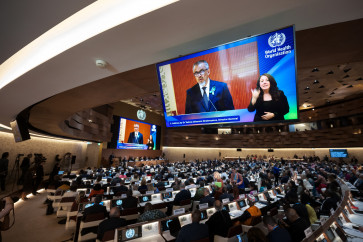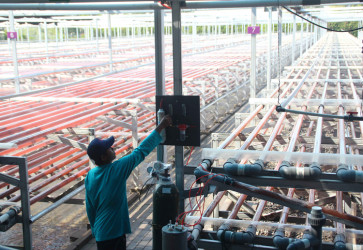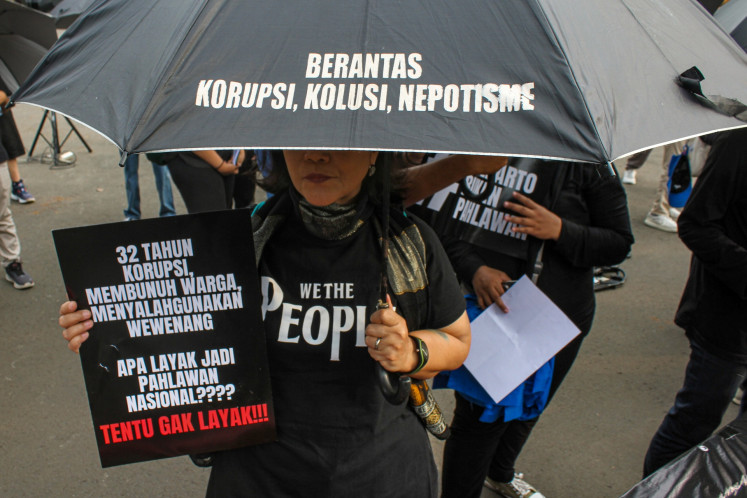Saint-Gobain holds back investment plan
French multinational Saint-Gobain Group has delayed its plan to build an automotive glass production facility in the country this year as national car sales are forecast to hit a three-year low amid an economic slowdown
Change text size
Gift Premium Articles
to Anyone

F
rench multinational Saint-Gobain Group has delayed its plan to build an automotive glass production facility in the country this year as national car sales are forecast to hit a three-year low amid an economic slowdown.
Saint-Gobain CEO Pierre-André de Chalendar said in a recent limited press briefing that his company had decided to hold back its investment in an auto glass plant until the four-wheeler car and truck market started to recover.
'There has been a significant drop in automotive production this year, so we will delay [building the plant] a little bit. We're not going to do it this year, we'll do it once the market recovers,' he said.
Southeast Asia's automotive sales fell by almost 15 percent to 1.6 million units in the first half of this year, with major markets like Indonesia, Malaysia and Thailand recording a slump in sales.
Indonesia's car sales plunged by 15.5 percent to 671,679 units for the January-August period this year from 794,775 units in the same period of last year, mainly driven by weaker consumer purchasing power.
The country's national auto sales are forecast to reach no more than 1 million units this year, a level unseen in the last three years, according to data from the Association of Indonesian Automotive Manufacturers (Gaikindo).
Chalendar said, however, his company was ready to start building the auto glass plant anytime after the market improved as the firm had already bought a plot of land near its US$45 million-gypsum plant in the Cikande industrial estate, Banten.
The investment for the land purchase, according to Chalendar, hit roughly ¤20 million euros ($22.4 million). Saint-Gobain had planned to partner with Japanese firm Central Glass Co. Ltd. to operate the auto glass plant, Chalendar said.
Saint-Gobain's Indonesian automotive glass plant, once established, would be the company's second in Southeast Asia. The plant is set to help the firm fulfil demand for car glass from global car manufacturers for various markets across Asia.
While the hope for the Indonesian market remained high, Chalendar said that his firm hoped for better stability in regulations and improved infrastructure.
Saint-Gobain's business in Indonesia currently accounted for only 0.2 percent of its ¤41 billion global business.
Its business size in the country, however, has grown rapidly from ¤15 million euros five years ago to a projected ¤100 million at present.
Europe has become the company's largest market, accounting for 65 percent of its sales, with the Americas and Asia making up the remaining 15 percent and 20 percent, respectively.
Chalendar refused to disclose any growth target this year as markets remained volatile, but he aimed for double-digit growth in Indonesia over the next few years, surpassing the 10 percent-growth target within the Asian market.









